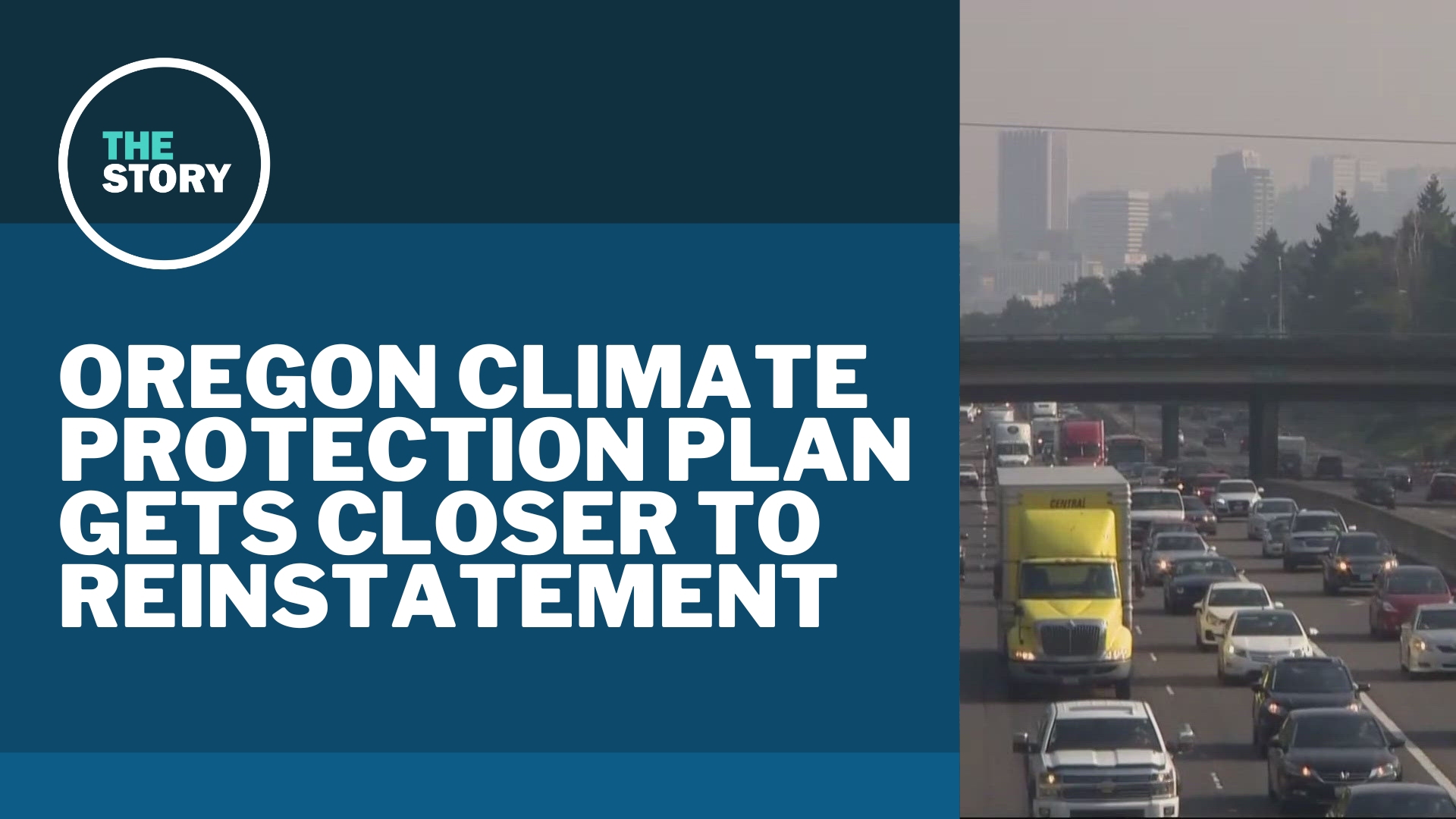PORTLAND, Ore. —
Oregon’s signature climate policy is one step closer to being reinstated after it was invalidated last year.
The Climate Protection Program, first created through an executive order by former Gov. Kate Brown, was struck down by an appeals court in December over some technical errors in the administrative process.
Since then, officials at the Department of Environmental Quality have been working to get the policy reimplemented. Last week, the Rulemaking Advisory Committee, comprised of environmental advocates, policy experts, industry representatives and utilities, had its third and final meeting.
Nora Apter, director of programs for the Oregon Environmental Council and a member of the rulemaking committee, said time is of the essence.
“We have unfortunately lost years due to the invalidation of the Climate Protection Program,” she said. “It is vital that the CBP is restored as soon as possible.”
While the meetings are complete, the state is still tinkering with the details of the program's rules, with draft rules expected to be released in the coming weeks. And like any negotiation, there has been some tension.
David Roy, a spokesman for Oregon’s largest natural gas utility, NW Natural, said there are still issues in the new rules that need fixing.
“We have concerns about the program's viability, its carbon reduction efficacy, and its unprecedentedly high costs,” Roy said in a statement. “It’s our position that if DEQ moves forward with this program, there are changes that must be made to protect Oregonians.”
Apter noted that NW Natural was one of the entities that brought the lawsuit that caused the original program to be invalidated in the first place.
“We are advocating for a program and hoping to maintain the integrity of this really cornerstone climate justice policy, at the same time as the parties in the room are fighting to weaken it,” she said.
It hasn’t been all rancor and infighting, though.
Chris McCabe is executive director of the Northwest Pulp and Paper Association and has been on the rulemaking committee for both this iteration of the program and the first one.
“I think the process this time around seems to be more collaborative. Being in person, having all lhe different interests in the same room has helped with that,” he said, noting that the first committee meetings were all held virtually due to the pandemic.
“I think the agency has really done a good job rolling up its sleeves and listening to some of the concerns that were not, in my view, adequately addressed during the first CPP rule,” McCabe said.
One of those concerns was how the program would affect businesses like paper mills, which compete internationally.
“They compete every day with facilities that are not only in other parts of the country, but overseas in other countries,” McCabe said. “If the mills in Oregon are saddled with too many costs, they're not going to be able to produce a competitive product.”
That could force some businesses to move their operations elsewhere, McCabe said, likely to places with fewer environmental regulations.
“We're going to see a net increase in greenhouse gas emissions, and that's exactly opposite of what we would like to see,” he said.
The program does include some flexibility for businesses that are unable to comply with emissions restrictions – including the buying and selling of credits and smoothing emissions over three-year periods.
But McCabe said he hopes businesses like the ones he represents will receive some relief on emissions caps in the final rules.
“We're trying to all collectively reduce greenhouse gas emissions and not accidentally have a net increase from squeezing production out of the state,” McCabe said.
Another mechanism to ensure compliance comes in the form of Community Climate Investments, credits that polluters could purchase if they are unable to stay under the emissions cap. Under the current draft rules, the credits would start at around $130 per metric ton of emissions and would increase by $1 per year plus inflation.
The proceeds from the credits would fund projects like community solar programs and initiatives to provide heat pumps to low-income households.
Xitlali Torres, air quality and climate program director for the environmental nonprofit Verde, said it’s important to keep marginalized communities at the forefront, as they often bear an outsized burned of the effects of climate change.
“Climate change is going to have a cost no matter what,” Torres said. “It's just a matter of if those costs are going to be continued to be incurred by environmental justice communities, or if industry is going to be held accountable.”
And Apter was adamant that, with the recent substantial federal investments through the Inflation Reduction Act, that the transition away from fossil fuels won’t be as costly as some in industry have said.
“We have seen time and time again industry painting a picture of a scary, expensive future and that is not the reality,” she said. “What they don't want people to know is that the transition to clean energy is going to be cheaper and healthier for everyone.”
The state is expected to release the rules publicly later this month, followed by a period for public comment, then a hearing, with a final vote by the Environmental Quality Commission in time to reimplement the program early next year.

